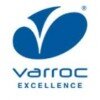Filter interviews by
Revent Group Interview Questions and Answers
18 Interview questions
PDI stands for Pre-Delivery Inspection.
PDI is a quality control process conducted before delivering a product to the customer.
It involves checking the product for any defects or issues that may have occurred during manufacturing or transportation.
Examples of PDI include inspecting a car before it is handed over to a customer to ensure it meets quality standards.
PDI is commonly used in industries such as automotive...
DHCP server assigns IP addresses to devices on a network automatically.
DHCP stands for Dynamic Host Configuration Protocol
It eliminates the need for manual IP address configuration
DHCP server assigns IP addresses, subnet masks, default gateways, and DNS servers
DHCP lease time determines how long a device can use an assigned IP address
Examples of DHCP servers include Windows Server, Cisco routers, and Linux DHCP se...
A VMC machine, also known as a vertical machining center, is a type of milling machine used for precision cutting and shaping of metal or other materials.
VMC stands for Vertical Machining Center.
It is a computer-controlled machine tool that uses rotating cutting tools to remove material from a workpiece.
VMC machines are commonly used in industries such as automotive, aerospace, and manufacturing.
They are capable o...
Sodium bentonite, Calcium bentonite, Potassium bentonite, Aluminum bentonite
Sodium bentonite is used in drilling muds, Calcium bentonite is used in cement and animal feed, Potassium bentonite is used in cosmetics and pharmaceuticals, Aluminum bentonite is used in water purification
Bentonite is a type of clay that is composed of volcanic ash
Bentonite is known for its ability to absorb water and expand
Bentonite is a...
Silica sand is commonly used in foundries due to its high melting point and low reactivity.
Silica sand is the most commonly used type of sand in foundries.
It has a high melting point, which makes it ideal for use in casting metals.
It is also low in reactivity, which means it won't react with the metal being cast.
Other types of sand, such as zircon sand, chromite sand, and olivine sand, may also be used in foundrie...
Coal dust plays a significant role in various industries, including energy production and manufacturing.
Coal dust is used as a fuel in power plants to generate electricity.
It is also used in the manufacturing of steel and cement.
Coal dust can be a health hazard for workers who are exposed to it regularly.
It can cause respiratory problems and lung diseases such as black lung disease.
Efforts are made to control coal...
Green sand is a mixture of sand, clay, water, and additives used in metal casting.
Green sand is the most commonly used molding material in foundries.
It gets its name from the fact that it is damp and green in color.
The sand mixture is compacted around a pattern to create a mold for casting.
The clay in the mixture helps to hold the sand together and create a smooth surface.
Additives like coal dust or sea coal can b...
Jig and fixture are tools used in manufacturing to hold and guide workpieces during machining operations.
Jigs are used to guide and control the cutting tool during machining operations.
Fixtures are used to hold and position the workpiece in the correct orientation for machining.
They increase production efficiency and accuracy while reducing costs.
Examples include drill jigs, welding fixtures, and inspection fixtur...
Simulation is the imitation of a real-world process or system, while modeling is the creation of a simplified representation of a system.
Simulation involves running a model to observe its behavior in different scenarios.
Modeling involves creating a simplified representation of a system or process.
Simulation is used to predict the behavior of a system under different conditions.
Modeling is used to understand the be...
Precision refers to the level of accuracy and consistency in measurements or actions.
Precision is the ability to consistently produce the same result.
It involves minimizing the amount of error or deviation from the desired outcome.
Precision is important in fields such as engineering, manufacturing, and science.
Examples of precision include measuring instruments like micrometers and calipers, as well as machining p...
Revent Group Interview Experiences
17 interviews found
I applied via Recruitment Consulltant and was interviewed in Dec 2024. There was 1 interview round.
(3 Questions)
- Q1. Quality inspection process
- Q2. Pdi full name..
- Ans.
PDI stands for Pre-Delivery Inspection.
PDI is a quality control process conducted before delivering a product to the customer.
It involves checking the product for any defects or issues that may have occurred during manufacturing or transportation.
Examples of PDI include inspecting a car before it is handed over to a customer to ensure it meets quality standards.
PDI is commonly used in industries such as automotive, ele...
- Q3. Parts process quality control plan
Interview Preparation Tips
I appeared for an interview in Nov 2024, where I was asked the following questions.
- Q1. How do you plan to address the challenges associated with process improvement?
- Ans.
I will implement structured strategies to enhance efficiency, compliance, and team collaboration in taxation processes.
Conduct a thorough assessment of current processes to identify bottlenecks and inefficiencies.
Engage with team members to gather insights and suggestions for improvement, fostering a culture of collaboration.
Implement technology solutions, such as automation tools, to streamline repetitive tasks and re...
- Q2. Yours strengths
- Ans.
I excel in analytical thinking, communication, and leadership, which are crucial for effective tax management.
Strong analytical skills: I can dissect complex tax regulations and identify opportunities for tax savings, as demonstrated in my previous role where I uncovered $500,000 in potential tax credits.
Effective communication: I regularly present tax strategies to senior management, ensuring clarity and alignment wit...
I applied via Walk-in and was interviewed in Dec 2023. There were 2 interview rounds.
(2 Questions)
- Q1. Self introduce, documentation
- Q2. Design fixture, gauge
(1 Question)
- Q1. Self intoduce, salary
Interview Preparation Tips
- Apqp,ppap
- Core tool
- Technical review
- Layout Design
I applied via Recruitment Consulltant and was interviewed in Sep 2023. There were 3 interview rounds.

(2 Questions)
- Q1. Tough Questions on production
- Q2. Management and time management
(2 Questions)
- Q1. WOrking exprience
- Q2. SYstems Knowledge
Interview Preparation Tips
I applied via Walk-in and was interviewed in Dec 2023. There was 1 interview round.
(1 Question)
- Q1. Job profile Worl
- Ans. My profile os NPD and prpcess engineering
Interview Preparation Tips
- New Product Development
- Process Improvement
- PPAP Documentation
- Documentation
- Apqp
- PFMEA
- AutoCAD
- Layout
- Line Balancing
- Technical review
- Customer Handling
I applied via LinkedIn and was interviewed in Aug 2023. There were 2 interview rounds.

(2 Questions)
- Q1. BASIC SQL RELATED QUESTIONS
- Q2. TELL ABOUT YOURSELF
Interview Preparation Tips
I applied via Referral and was interviewed in Jul 2023. There were 3 interview rounds.

Maths general mechanical
(1 Question)
- Q1. Mechanical engineering ppap csr ms project
Interview Preparation Tips
I applied via Recruitment Consulltant

(6 Questions)
- Q1. All Instruments with least count like DVC , micrometer, inside caliper etc
- Q2. All gauges like PPG, APG, TPG, RING gauges, pressure gauges etc
- Q3. 5 core tools of quality
- Ans.
The 5 core tools of quality are: flowcharts, check sheets, histograms, Pareto charts, and cause-and-effect diagrams.
Flowcharts: Visual representation of a process to identify areas of improvement.
Check sheets: Used to collect and organize data for analysis.
Histograms: Graphical representation of data distribution.
Pareto charts: Helps prioritize problems by identifying the most significant factors.
Cause-and-effect diagr...
- Q4. 7 QC tools for quality
- Ans.
The 7 QC tools are a set of techniques used in quality management to identify and solve problems.
Check sheet: Used to collect and analyze data
Control chart: Monitors process performance over time
Histogram: Visualizes data distribution
Pareto chart: Identifies and prioritizes problems
Cause-and-effect diagram: Identifies root causes of problems
Scatter diagram: Shows relationship between two variables
Flowchart: Illustrates...
- Q5. 8 D principles for customer complaints handling
- Ans.
The 8 D principles for customer complaints handling are a systematic approach to resolving customer issues.
Define the problem
Determine the root cause
Develop a corrective action plan
Deploy the plan
Do a verification of the solution
Document the process
Determine the effectiveness of the solution
Drive prevention to avoid future complaints
- Q6. Process audits and product Audits
(3 Questions)
- Q1. Self introduction, educational background, achievements etc
- Q2. Personality development related question
- Q3. Team work, leadership related question
Interview Preparation Tips
Be calm and presentable
Don't give answers based on assumptions, be specific with facts.

(2 Questions)
- Q1. Basic questions related to branch.
- Q2. What is automation. What is machine and transform and it's principal and work.
- Ans.
Automation is the use of technology to perform tasks without human intervention.
Automation involves the use of machines, computers, and other technologies to perform tasks that would otherwise require human intervention.
Examples of automation include robotic assembly lines, self-driving cars, and smart home systems.
Machine and transform is a principle in electrical engineering that describes the relationship between in...
Skills evaluated in this interview
I applied via Recruitment Consulltant and was interviewed before Oct 2022. There were 5 interview rounds.

(1 Question)
- Q1. As per post requirment basic
(1 Question)
- Q1. As per post and experience
(1 Question)
- Q1. As per knowledge of experience and technical
(1 Question)
- Q1. As per joining and salary discussion
Interview Preparation Tips
Top trending discussions






Revent Group Interview FAQs
The duration of Revent Group interview process can vary, but typically it takes about less than 2 weeks to complete.
Tell us how to improve this page.
Revent Group Interviews By Designations
- Revent Group Management Trainee Interview Questions
- Revent Group Graduate Engineer Interview Questions
- Revent Group Quality Engineer Interview Questions
- Revent Group Engineering Manager Interview Questions
- Revent Group Project Manager-Production/Manufacturing/Maintenance Interview Questions
- Revent Group Design Engineer Interview Questions
- Revent Group Intern Interview Questions
- Revent Group Mechanical Engineer Interview Questions
- Show more
Interview Questions for Popular Designations
Overall Interview Experience Rating
based on 11 interview experiences
Difficulty level
Duration
Interview Questions from Similar Companies
Revent Group Reviews and Ratings
based on 435 reviews
Rating in categories
|
Quality Engineer
32
salaries
| ₹1.8 L/yr - ₹4.2 L/yr |
|
Engineer
28
salaries
| ₹2 L/yr - ₹6 L/yr |
|
Assistant Manager
25
salaries
| ₹4.8 L/yr - ₹8.5 L/yr |
|
Production Engineer
23
salaries
| ₹2 L/yr - ₹4.2 L/yr |
|
Senior Engineer
18
salaries
| ₹3.6 L/yr - ₹7.2 L/yr |

JBM Group

Subros

UNO Minda

Varroc Group
- Home >
- Interviews >
- Revent Group Interview Questions













